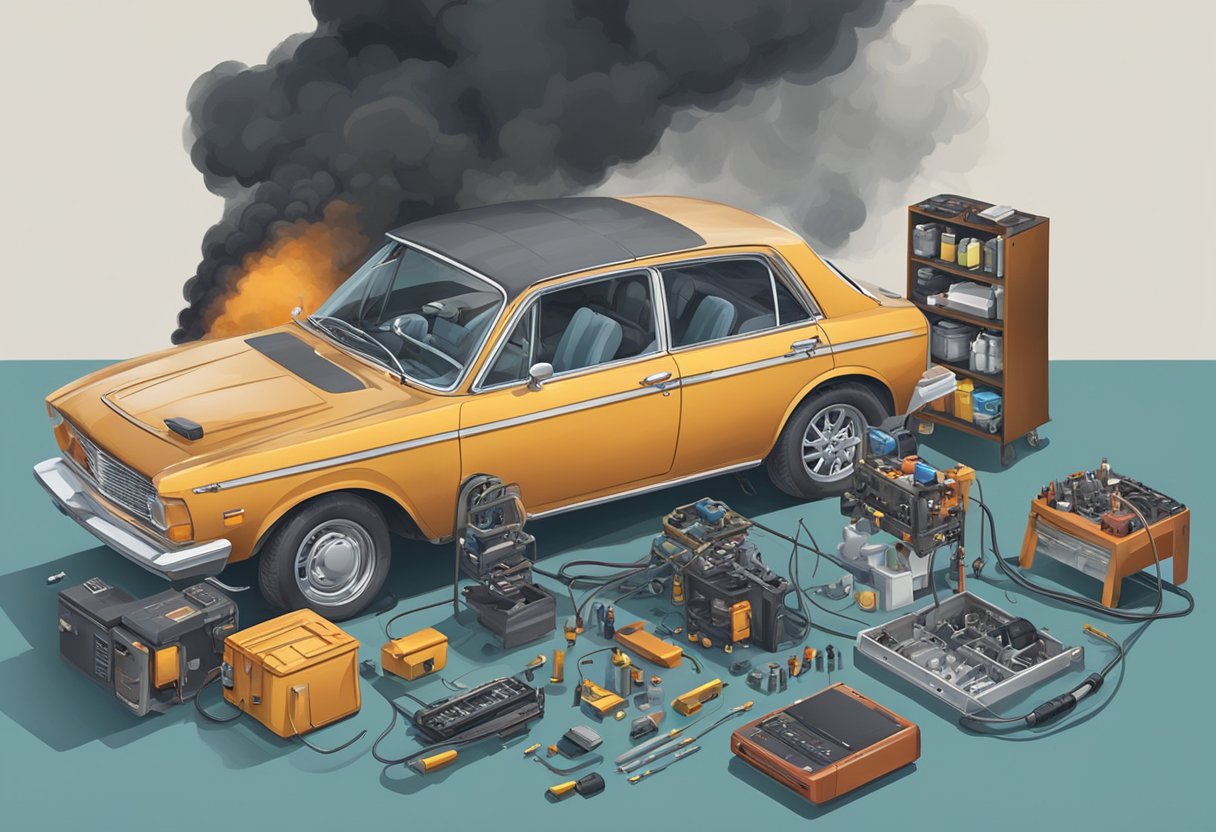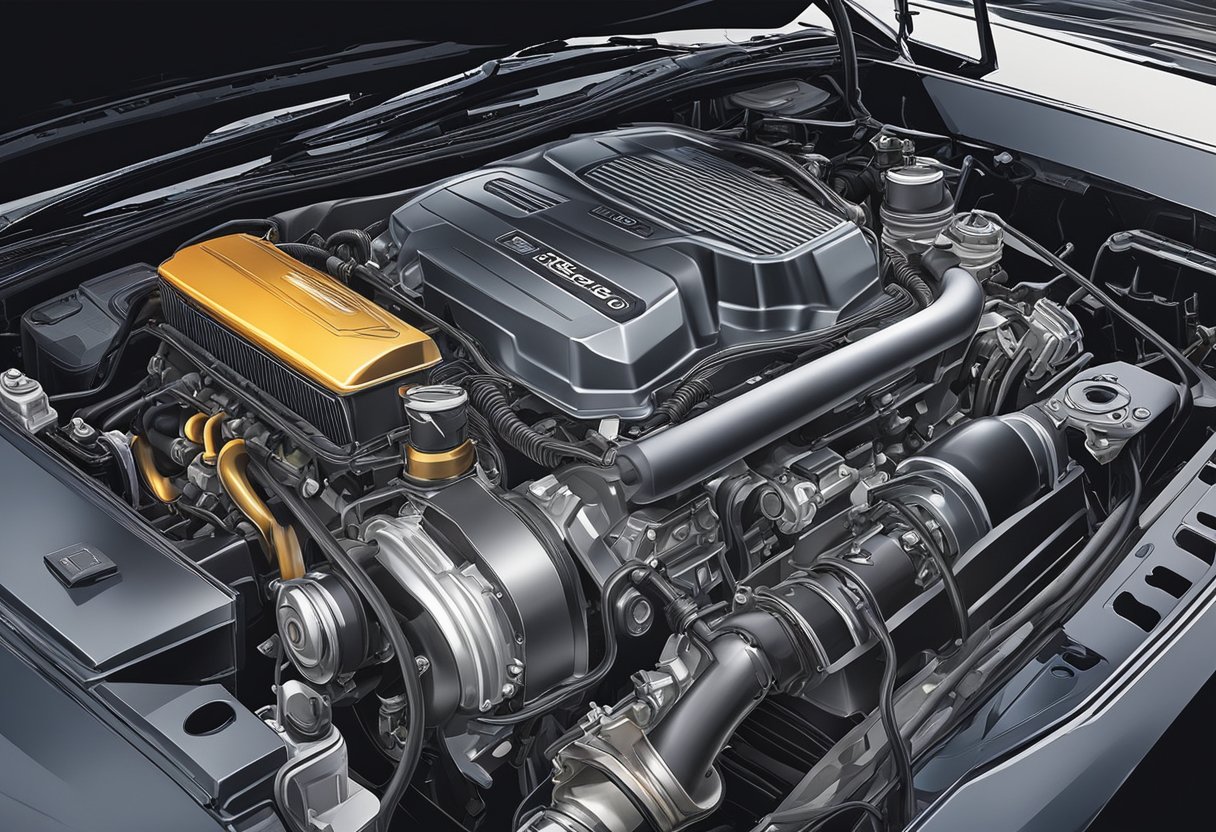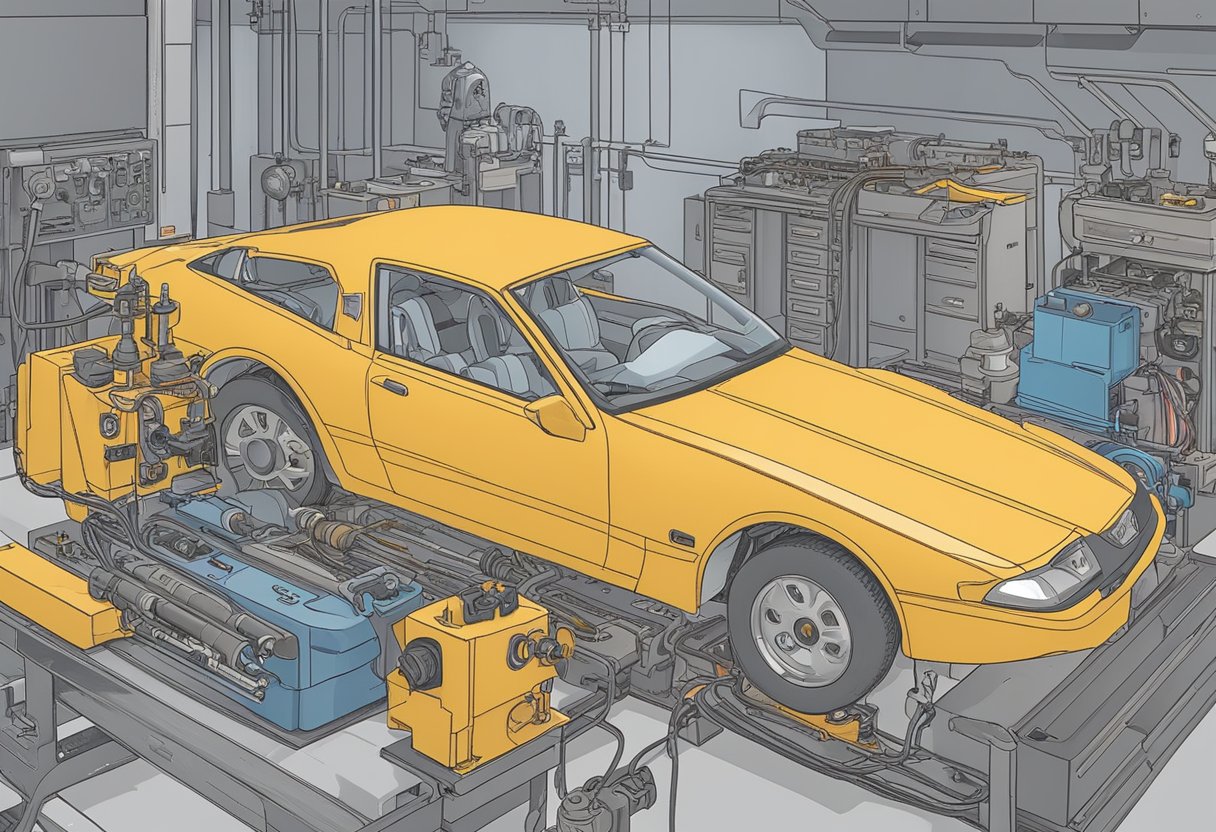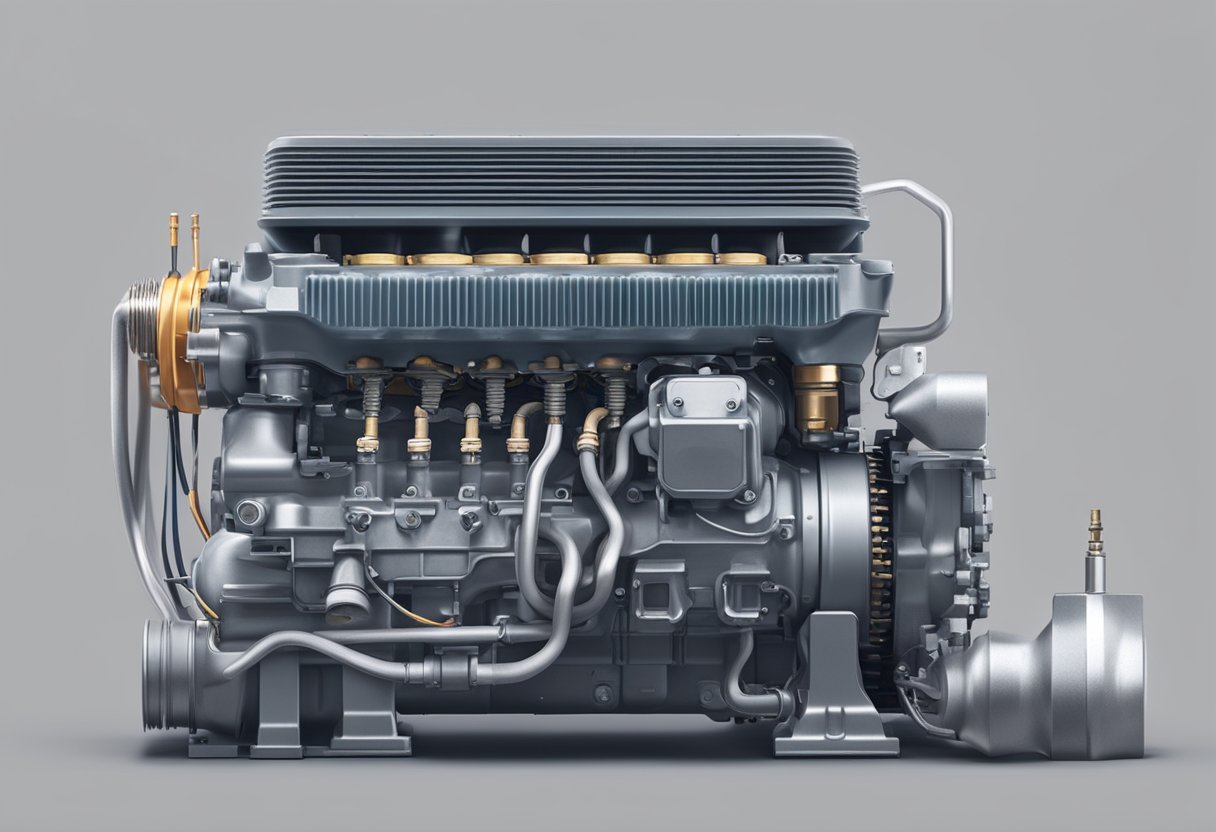If you’re experiencing problems with your vehicle’s engine, it could be due to a faulty ignition control module.
Ignition control modules are responsible for controlling the ignition system and ensuring that the engine runs smoothly.
When the module fails, it can cause a variety of symptoms that can be frustrating to deal with.
One of the most common symptoms of a failing ignition control module is engine misfires.
This can cause the engine to run rough or stall, which can be dangerous if you’re driving at high speeds.
Other symptoms can include difficulty starting the engine, poor fuel economy, and even the check engine light coming on.
If you’re experiencing any of these symptoms, it’s important to have your vehicle inspected by a qualified mechanic.
Replacing an ignition control module can be a costly repair, but it’s necessary to ensure that your vehicle is running properly.
The cost of replacement can vary depending on the make and model of your vehicle, as well as the severity of the problem.
In some cases, the module may need to be replaced along with other components of the ignition system, which can further increase the cost.
It’s important to have a trusted mechanic diagnose the problem and provide an accurate estimate for the repair.
Understanding Ignition Control Modules
When it comes to your vehicle’s ignition system, the ignition control module plays a crucial role in ensuring your engine starts and runs smoothly.
Understanding how this component works and what it’s made up of can help you identify symptoms of failure and make informed decisions about replacement.
Function of an Ignition Control Module
The ignition control module, also known as the ICM, is responsible for controlling the ignition coil’s firing sequence.
It receives signals from the engine’s sensors and calculates the optimal time to fire the spark plugs, ensuring the engine runs smoothly and efficiently.
The ICM also monitors the engine’s RPM and adjusts the timing accordingly.
Components of an Ignition Control Module
The ignition control module is made up of several components that work together to ensure proper ignition timing.
These components include:
-
Power transistor: This component controls the flow of electrical current to the ignition coil, allowing it to fire the spark plugs at the correct time.
-
Capacitor: The capacitor stores electrical energy and releases it to the ignition coil when needed, ensuring a strong spark.
-
Heat sink: The heat sink helps dissipate heat generated by the ICM, preventing overheating and damage to the module.
-
Wiring harness: The wiring harness connects the ICM to the engine’s sensors and other components, allowing it to receive signals and send commands.
Understanding the function and components of the ignition control module can help you diagnose and address issues with your vehicle’s ignition system.
If you suspect your ICM is failing, it’s important to have it inspected by a qualified mechanic and replaced if necessary to avoid further damage to your engine.
Symptoms of a Failing Ignition Control Module
If your car’s engine is not functioning properly, it might be due to a failing ignition control module (ICM).
The ICM is responsible for controlling the ignition system of your car.
It regulates the spark that ignites the fuel in the engine, which in turn powers your car. Here are some symptoms of a failing ICM:
Engine Misfires and Stalling
If you notice that your engine is misfiring or stalling, it could be due to a failing ICM.
A misfire occurs when the spark plug does not ignite the fuel in the engine at the right time.
This can cause the engine to run rough, shake, or stall.
If left unaddressed, a misfiring engine can cause damage to other parts of your car.
Difficulty Starting the Engine
If you are having trouble starting your car, it could be due to a failing ICM.
The ICM sends a signal to the ignition coil to produce the spark that ignites the fuel in the engine.
If the ICM is not functioning properly, the ignition coil may not receive the signal, which can make it difficult to start your car.
Reduced Fuel Efficiency
A failing ICM can also cause your car to have reduced fuel efficiency. The ICM regulates the spark that ignites the fuel in the engine.
If the ICM is not functioning properly, the spark may not be strong enough to ignite the fuel efficiently, which can cause your car to use more fuel than necessary.
In summary, if you notice any of these symptoms, it is important to get your car checked out by a qualified mechanic.
Ignoring a failing ICM can cause damage to other parts of your car and can even lead to a breakdown on the road.
Diagnosing Ignition Control Module Failures
If you suspect that your ignition control module (ICM) is failing, there are a few steps you can take to diagnose the issue.
Here are two common methods:
Diagnostic Trouble Codes
One way to diagnose an ICM failure is by checking for diagnostic trouble codes (DTCs).
DTCs are codes that are stored in your vehicle’s computer when a component is not functioning properly.
To check for DTCs related to the ICM, you will need an OBD-II scanner.
First, plug the scanner into your vehicle’s OBD-II port, which is usually located under the dashboard on the driver’s side.
Then, follow the scanner’s instructions to retrieve any stored codes.
If there are any codes related to the ICM, the scanner will display them.
Professional Inspection
Another way to diagnose an ICM failure is to have a professional mechanic inspect your vehicle.
A mechanic will use a variety of tools and techniques to determine whether the ICM is functioning properly.
During an inspection, the mechanic may use a scope to check the ICM’s waveform or perform a voltage drop test to check for any electrical issues.
They may also use a multimeter to check the ICM’s resistance or perform a continuity test to check for any breaks in the circuit.
Overall, if you suspect that your ICM is failing, it is important to diagnose the issue as soon as possible to prevent further damage to your vehicle’s ignition system.
By checking for DTCs or having a professional inspection, you can determine whether the ICM needs to be replaced and take the necessary steps to get your vehicle back on the road.
– What Are the Common Symptoms of Ignition Control Module Failures That Would Require Replacement?
When an ignition control module fails, you may experience symptoms such as engine stalling, rough idling, and difficulty starting the car. These issues indicate a potential need for ignition lock cylinder replacement to fix the problem. It’s crucial to address these symptoms promptly to avoid being stranded due to a failed ignition control module.
Replacement Costs for Ignition Control Modules
If you suspect that your ignition control module (ICM) has failed, you may be wondering about the cost of replacement.
The price of replacing an ICM can vary depending on several factors.
Factors Affecting Replacement Costs
The cost of an ICM replacement can be influenced by several factors, including the make and model of your vehicle, the age of the vehicle, and the severity of the damage.
In some cases, the location of the repair shop can also affect the price.
Estimated Cost Range
The estimated cost range for an ICM replacement can vary widely, depending on the factors mentioned above.
In general, you can expect to pay between $100 and $500 for a replacement ICM, including parts and labor.
To get an accurate estimate for your specific vehicle, it’s best to consult with a qualified mechanic or repair shop.
They can provide you with a detailed breakdown of the costs involved and help you make an informed decision about whether to repair or replace your ICM.
In conclusion, the cost of replacing an ignition control module can vary depending on several factors, but you can expect to pay between $100 and $500 for the replacement.
If you suspect that your ICM has failed, it’s best to consult with a qualified mechanic to get an accurate estimate for your specific vehicle.
Preventive Measures and Maintenance Tips
Regular Maintenance Schedule
Regular maintenance is essential to prevent ignition control module failures.
It is recommended that you follow the manufacturer’s maintenance schedule.
This will help ensure that the ignition control module is inspected, cleaned, and replaced if necessary.
During regular maintenance, the ignition control module should be inspected for any signs of wear or damage.
Any damaged parts should be replaced immediately to prevent further damage to the ignition control module.
Avoiding Common Causes of Failure
There are several common causes of ignition control module failures that can be avoided with proper maintenance and care.
Here are some tips to help you avoid these common causes of failure:
-
Keep your engine clean: Dirt and debris can cause damage to the ignition control module.
Regularly cleaning your engine can help prevent this.
-
Check your battery: A weak or dead battery can cause the ignition control module to fail.
Regularly checking and maintaining your battery can help prevent this.
-
Check your spark plugs: Faulty spark plugs can cause damage to the ignition control module.
Regularly checking and replacing your spark plugs can help prevent this.
-
Check your wiring: Faulty wiring can cause damage to the ignition control module.
Regularly checking and maintaining your wiring can help prevent this.
By following these tips and maintaining your ignition control module, you can help prevent failures and save money on costly repairs.
As an Amazon Associate we earn from qualifying purchases.















